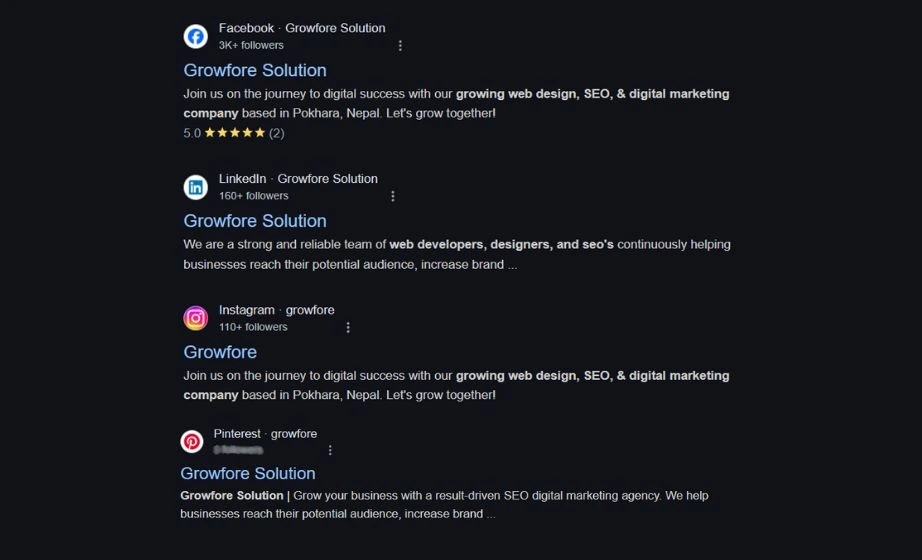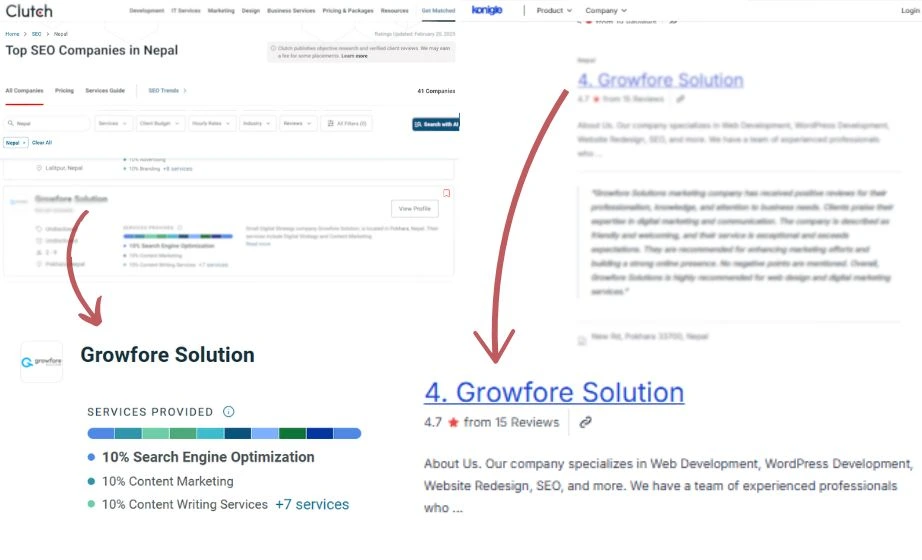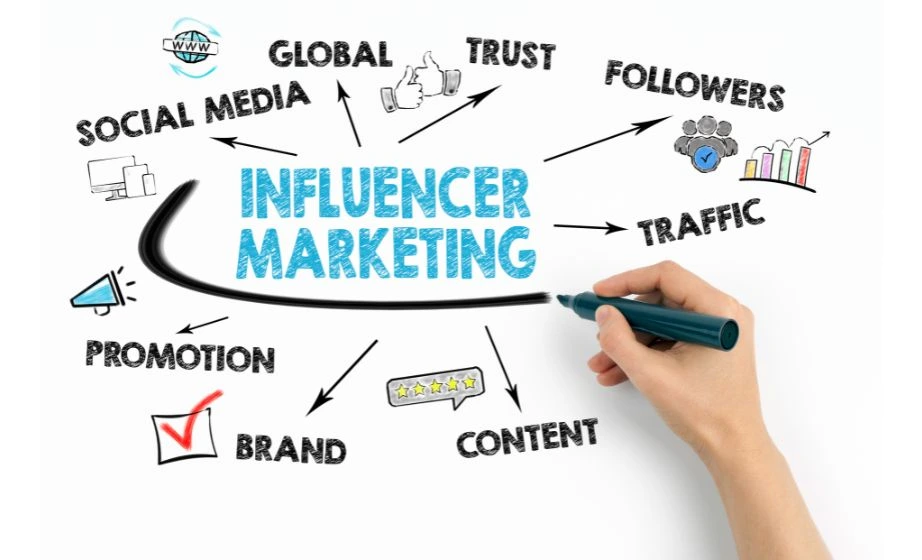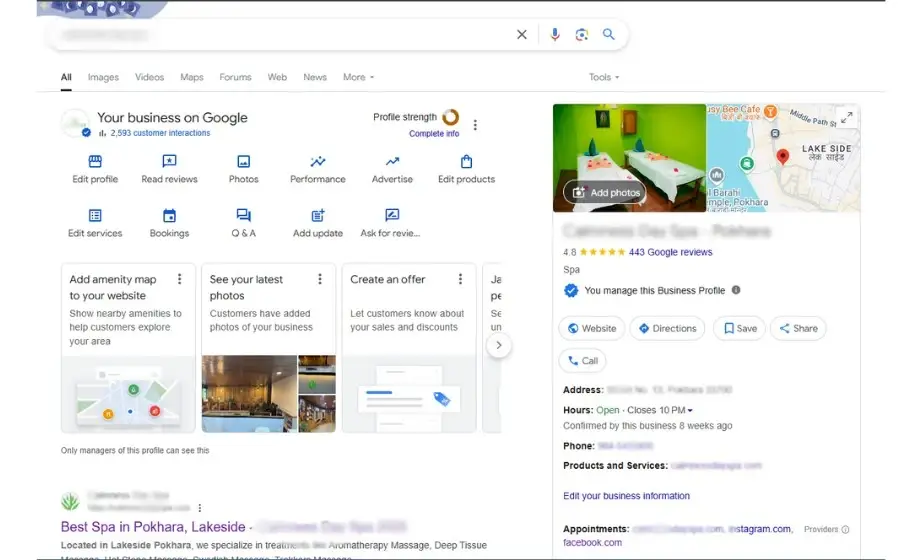Top 7 Off-Page SEO Ranking Factors
In the competitive world of SEO, off-page SEO plays a pivotal role in determining your website’s visibility and ranking on search engines. Unlike on-page SEO, which focuses on optimizing content, structure, and technical elements on your website, off-page SEO refers to actions you take outside your website to improve its position in search rankings.
This includes a variety of strategies, tactics, and factors that signal trustworthiness, authority, and relevance to search engines.
In this guide, we’ll explore the key off-page SEO ranking factors, discuss an off-page SEO factors list, and share effective off-page SEO techniques to elevate your website’s authority and drive more organic traffic.
What is Off-Page SEO?
Off-page SEO encompasses everything you can do outside your website to improve its position in the search results. It focuses on building your site’s reputation through various external signals, mainly involving backlinks, social media, influencer marketing, and brand mentions.
While on-page SEO makes sure your website is well-structured and optimized for search engines, off-page SEO ensures that your site is recognized, trusted, and valued by other websites and users on the internet.
Off-page SEO is the art of building trust and authority beyond your website. Quality backlinks and brand mentions shape your online reputation.
Key Off-Page SEO Ranking Factors
| Factor | On-Page SEO | Off-Page SEO |
|---|---|---|
| Focus | Directly on the website |
External factors |
| Main Goal | Make the website more |
Build the website’s |
| Impact | Immediate impact on |
Long-term impact |
| Control | Full control over |
Limited control, |
| Measurement | Easily measurable |
Measured through |
| Example Techniques | Keyword optimization, |
Link building, |
Several off-page SEO ranking factors influence how your website ranks in search engine results. Let’s dive into some of the most crucial ones:
1. Backlinks (Link Building)
Backlinks are the cornerstone of off-page SEO. These are incoming links from other websites to your site. Search engines like Google consider backlinks as “votes of confidence,” signifying that your content is valuable and trustworthy. The quality, quantity, and relevance of backlinks directly impact your rankings.
Key Backlink Factors:
- Authority of the Linking Site
- Backlinks from high-authority sites, such as government, educational, or well-established media outlets, carry more weight.
- Relevance of the Linking Page
- Links from sites within your niche or industry are more valuable.
- Anchor Text
- The clickable text used in a hyperlink should be relevant to the content you’re linking to.
- Follow vs. No-follow Links
- Followed links pass link equity (ranking power), while no-follow links do not.
2. Social Media

Social media activity indirectly influences SEO rankings. While social signals (shares, likes, comments) do not have a direct effect on ranking, they help to increase exposure, drive traffic, and create more opportunities for backlinks.
When people share your content on social media, it often results in increased traffic and more links to that content. Even without immediate links or traffic, social media attention leads to more brand searches and mentions, which benefits your off-page SEO.
Social Media Techniques:
- Promote blog posts, infographics, and videos on platforms like Facebook, Twitter, Instagram, and LinkedIn.
- Engage with your audience by responding to comments and questions to foster a loyal community.
- Build relationships with influencers who can help spread your content and brand message.
3. Brand Mentions

Brand mentions, even without a direct backlink, are considered an off-page ranking factor. When your brand is mentioned across various platforms, it signals to search engines that your business is authoritative and recognized. Search engines like Google analyze the context of these mentions to gauge your brand’s reputation and relevance.
How to Leverage Brand Mentions:
- Encourage user-generated content, such as reviews or testimonials.
- Get involved in relevant forums like Reddit and Quora and online communities to increase brand mentions.
- Collaborate with industry influencers who may mention your brand.
4. Guest Blogging and Influencer Outreach

Guest blogging is a great way to earn backlinks and increase brand exposure. By contributing valuable content to other authoritative blogs in your industry, you can establish yourself as an expert while gaining high-quality backlinks.
Influencer outreach works similarly by connecting with key influencers or thought leaders who can share your content with their large following, generating more traffic and potential backlinks.
These strategies not only boost your website’s SEO but also help build meaningful relationships within your niche community, making guest blogging a powerful tool for long-term digital growth.
5. Local SEO and Citations

For businesses serving specific locations, local SEO is a critical off-page SEO factor. This involves getting listed in online business directories, such as Google My Business, Yelp, and other local directories. These citations help build your site’s local authority, making it easier for customers in your area to find you.
6. Content Marketing and Linkable Assets
Creating high-quality, shareable content is one of the most effective off-page SEO techniques. Valuable resources like infographics, industry reports, and guides tend to attract backlinks naturally because people want to reference authoritative, useful content.
By building linkable assets, you give other websites a reason to link back to your site, improving your overall SEO efforts.
7. Online Reputation Management
Your website’s reputation plays a significant role in your SEO performance. Google and other search engines assess the credibility and trustworthiness of your website based on how users perceive it. Negative reviews or an absence of reviews can harm your rankings, while positive reviews and ratings boost your authority.
Steps for Reputation Management:
- Monitor and respond to reviews on platforms like Google and Yelp.
- Address customer complaints professionally and promptly.
- Showcase positive testimonials on your website.
Off-Page SEO Ranking Factors List
Here’s a quick off-page SEO factors list that includes the most influential elements:
- Backlinks (Quality, Quantity, and Relevance)
- Social Signals (Shares, Likes, Comments)
- Brand Mentions (Without Direct Links)
- Guest Blogging and Influencer Outreach
- Local SEO and Citations
- Content Marketing (Linkable Assets)
- Online Reputation Management
- Forum and Community Participation
- Press Releases and Media Coverage
- Influencer Marketing
Off-Page SEO Techniques to Boost Your Rankings
To make the most of off-page SEO, here are some actionable techniques you can implement:
1. Building High-Quality Backlinks
Focus on acquiring backlinks from reputable websites within your niche. Quality always trumps quantity, so aim for backlinks that will drive relevant traffic to your site.
2. Leverage Social Media Platforms
Social media is not just for engagement. It’s also a great tool for gaining visibility and driving traffic. Regularly post valuable content, interact with your followers, and collaborate with influencers to increase your presence.
3. Create Shareable Content
Craft content that people want to share. Infographics, case studies, and in-depth industry reports are often shared across blogs, social media, and other platforms, building backlinks in the process.
4. Engage with Online Communities
Participating in forums like Reddit, Quora, and niche-specific communities allows you to provide valuable answers and subtly promote your website. It’s a great way to increase brand mentions and build authority.
5. Focus on Local SEO
For businesses targeting a local audience, local citations are essential. Ensure your business is listed on Google My Business and other local directories, and encourage local reviews to boost local rankings.
Conclusion
Mastering off-page SEO is a crucial element in your overall SEO strategy. By focusing on building quality backlinks, engaging in content marketing, leveraging social media, and managing your online reputation, you’ll be well on your way to improving your website’s search engine ranking. Remember, off-page SEO is a long-term game, so be consistent and patient in your efforts, and the results will follow.
If you’re ready to take your SEO efforts to the next level, start implementing these off-page SEO ranking factors today, and watch your website climb to new heights!
Frequently asked questions
What is off-page SEO, and why is it important?
Off-page SEO refers to all activities performed outside your website to improve its ranking on search engines. It includes link building, social media marketing, influencer outreach, and brand mentions. It is important because it helps establish your website’s authority, trustworthiness, and relevance, which are key factors for ranking higher in search results.
What are the most important off-page SEO ranking factors?
The most crucial off-page SEO ranking factors include:
- Backlinks (Quality, Quantity, and Relevance)
- Social Signals (Shares, Likes, Comments)
- Brand Mentions (Linked and Unlinked)
- Guest Blogging & Influencer Outreach
- Local SEO & Business Citations
- Content Marketing & Linkable Assets
- Online Reputation Management (Reviews, Ratings, Trust Signals)
How do backlinks affect off-page SEO?
Backlinks are one of the strongest ranking signals in off-page SEO. They serve as votes of confidence from other websites, telling search engines that your content is valuable and trustworthy. However, quality matters more than quantity, a few high-authority backlinks from reputable sources will be more beneficial than numerous low-quality links.
What is the best way to build high-quality backlinks?
The best ways to build high-quality backlinks include:
- Guest posting on authoritative websites in your niche.
- Creating valuable content (infographics, reports, guides) that naturally attracts backlinks.
- Broken link building, where you replace outdated links on other sites with your own.
- Building relationships with industry influencers and getting them to share your content.
What is the difference between on-page SEO and off-page SEO?
On-page SEO focuses on optimizing elements within your website, such as content, meta tags, images, and internal links, while off-page SEO focuses on activities outside your website, such as link building, social media marketing, and brand reputation management.
How important is local SEO in off-page SEO?
Local SEO is crucial for businesses targeting local customers. Google My Business listings, local citations (Yelp, Bing Places), and customer reviews significantly influence local search rankings.
How long does it take to see results from off-page SEO?
Off-page SEO is a long-term strategy. The time required to see results varies based on competition, domain authority, and the quality of backlinks. Typically, noticeable improvements in rankings can take anywhere from 3 to 6 months or longer, depending on consistency and effort.
Off-page SEO refers to all activities performed outside your website to improve its ranking on search engines. It includes link building, social media marketing, influencer outreach, and brand mentions. It is important because it helps establish your website’s authority, trustworthiness, and relevance, which are key factors for ranking higher in search results.
The most crucial off-page SEO ranking factors include:
- Backlinks (Quality, Quantity, and Relevance)
- Social Signals (Shares, Likes, Comments)
- Brand Mentions (Linked and Unlinked)
- Guest Blogging & Influencer Outreach
- Local SEO & Business Citations
- Content Marketing & Linkable Assets
- Online Reputation Management (Reviews, Ratings, Trust Signals)
Backlinks are one of the strongest ranking signals in off-page SEO. They serve as votes of confidence from other websites, telling search engines that your content is valuable and trustworthy. However, quality matters more than quantity, a few high-authority backlinks from reputable sources will be more beneficial than numerous low-quality links.
The best ways to build high-quality backlinks include:
- Guest posting on authoritative websites in your niche.
- Creating valuable content (infographics, reports, guides) that naturally attracts backlinks.
- Broken link building, where you replace outdated links on other sites with your own.
- Building relationships with industry influencers and getting them to share your content.
On-page SEO focuses on optimizing elements within your website, such as content, meta tags, images, and internal links, while off-page SEO focuses on activities outside your website, such as link building, social media marketing, and brand reputation management.
Local SEO is crucial for businesses targeting local customers. Google My Business listings, local citations (Yelp, Bing Places), and customer reviews significantly influence local search rankings.
Off-page SEO is a long-term strategy. The time required to see results varies based on competition, domain authority, and the quality of backlinks. Typically, noticeable improvements in rankings can take anywhere from 3 to 6 months or longer, depending on consistency and effort.


